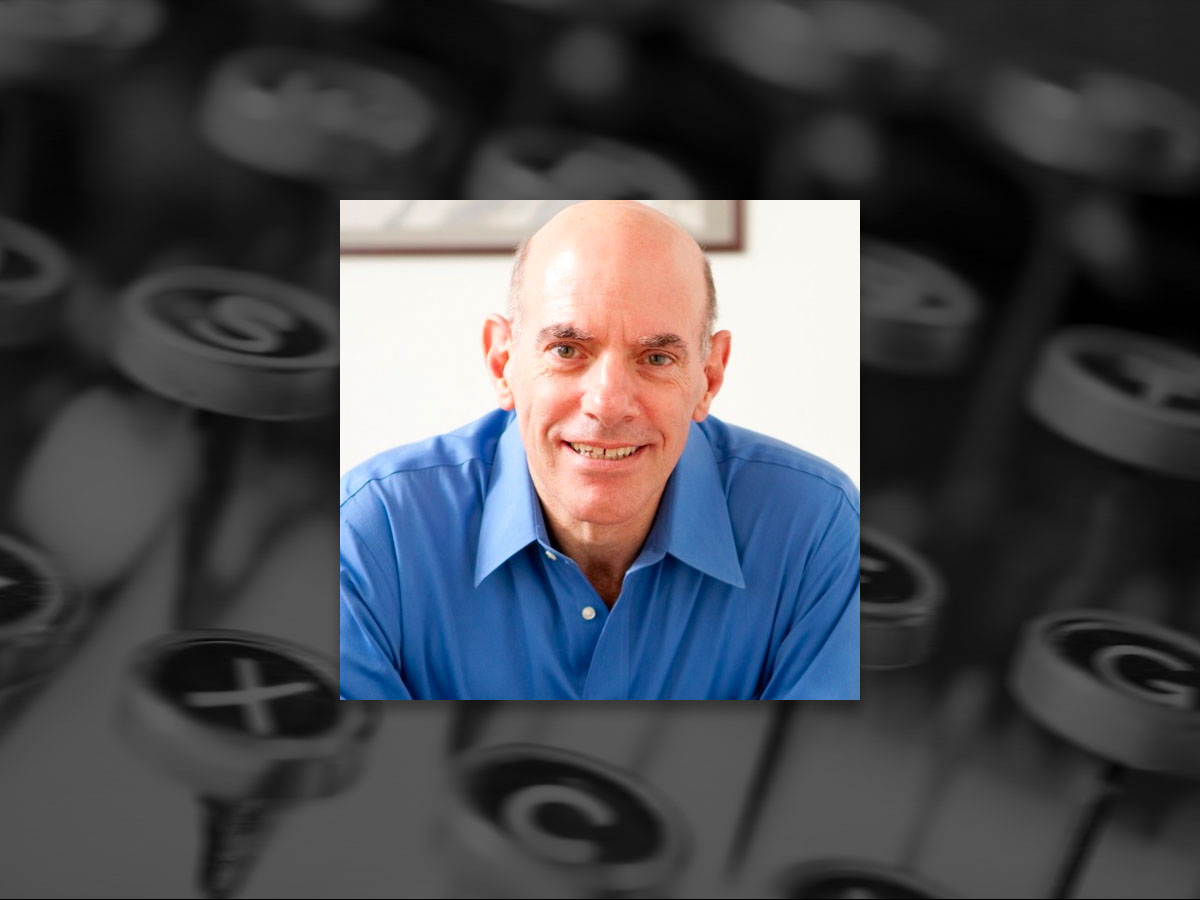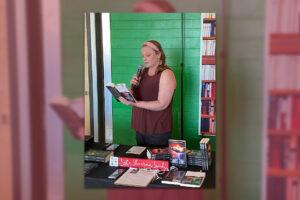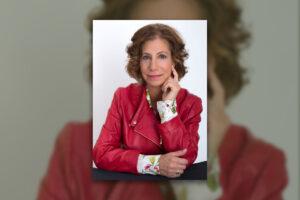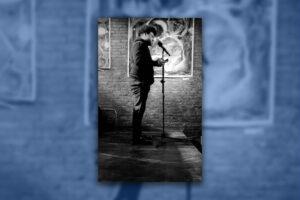By Ana Williams
Mark Nepo is a poet who has taught in the fields of poetry and spirituality for over 30 years. Nepo is best known for his New York Times #1 bestseller, “The Book of Awakening”. He has published 12 books and recorded six audio projects. He is also an Alumni at the University at Albany whom has taught at the University previously.
Ana Williams: Good Afternoon. I am here with Mark Nepo who is a poet as well as a spiritual advisor, and the author of the New York Times #1 bestseller “The Book of Awakening”. How are you today?
Mark Nepo: I am good. Thank you for taking the time to do this.
AW: Thank you. My first question is, as a poet what do you believe is the hardest part for getting your work completed?
M.N: I think the hardest part is staying- it’s different than when I was younger. When I was younger we’re taught that perseverance is like discipline, staying focused, and not getting distracted, and seeing things through, and that makes sense. But as I’ve gotten older I don’t have to worry about that. What I worry about is making sure I’m in my heart because, I don’t want it to just come from my mind. So now the hardest part is- I’m working let’s say, and my wife is a potter who’s working all day, and we’re going to meet for dinner at 5 and its 4 o’clock and I go “oh if I work really hard maybe I can finish this by dinner”. The discipline, the hard part now is I’ve just moved into my head. Drop it, walk away until tomorrow because I am no longer in my heart. And what’s the difference well I can still write from my head but that would be like a black and white photograph whereas if I write from my heart its color. It would be accurate, but it won’t have the life in it.
A.W: What is something you would say has motivated/influenced your writing?
M.N: Well I have to say I just turned 68 and back when I was teaching here in my early 30s I was stricken with a rare form of lymphoma and almost died, and I’m blessed to be here, and it turned me inside out and upside down, and that changed everything.
A.W: So that’s your biggest motivation.
M.N: Yea and what I would say is after that I became a student of all paths. All my books investigate all the traditions. I don’t need to choose between any, I just lift the gifts of all of them you know. But you know I have to say that I’ve learned through all that, that a lot of what is at the heart of the creative process, regardless the center of that art form. Whether you’re doing a dance, drawing a painting, that same processes help us stay real and connected.
A.W: You are known as a spiritual advisor. What led you to focus on that with writing? Or is the need for spirituality more on a personal level?
M.N: Well, I will say kindly people call me a spiritual advisor. I don’t call myself that you know. Its like when other people tell people they’re courageous and they go what did I do? I feel like – and I believe I have written about this – life both the good things and the difficult things weigh us down to what’s essential, and everybody goes through that process. And I’ve been worn down to what’s essential. In a way its like what that does – like suffering, difficulty, and wonder and beauty and love. All those things, what they do to human beings is, what erosion does to nature. We go around, we save up, I want to go – I remember once I was blessed and went to Barbados. Beautiful, oh my god, and that northern part of the island, those cliffs I think they’re called the hollows. You know those cliffs are one of the beauties of the world. But if you asked the cliffs they’d go “What are you talking about? I’m being pummeled a thousand years”. But that’s it, if we can hold each other up what’s left is beautiful. So, what I do is try to stay true to my own journey and know that what I’m going through isn’t unique to me. I’ve been given the gift to be able to articulate that process and share it and support it in others. When I do that people call me a spiritual advisor or a spiritual teacher, which I’m very honored by but I don’t have any answers. We’re just kind of comparing notes on what it is to be here.
A.W: Are there any works you’ve created that you see as your best to date?
M.N: Well, I wouldn’t say- its like choosing between children. You’ll never tell one their better or your favorite. But I do have pieces – so let me step back a second and say that I’m prolific because, that started to happen years ago when I realized I need to write about what I need to know, not what I already know. If I only wrote about what I knew I would’ve written very little and so this is how I learn. I follow my heart, I follow my questions, I follow my confusions, my wonder and that leads me to things that when I retrieve them they become my teachers. Rather than saying what’s my favorite writing I do have favorite teachers that have come to me where I know, and I trust that they mean well. There’s a lot of meaning there but I live with it to know what it means. If I’d said, “Well, I don’t know what that means I won’t write it”. I would’ve lost half of what I’ve written. Trusting the heart- so an example is a poem I can’t recite the whole thing, but I’ll tell you briefly. It’s in a book of mine called Reduced to Joy,it’s called “The Industry of No” and it was just a poem looking at how everywhere we’re taught to say no or have a preference, or this isn’t good enough. The thing that brings us alive is saying yes and not having preferences. One of the things I learned from my cancer journey is there’s no such thing as bad weather the only bad weather is no weather. You know it’s raining today and at first, I don’t like getting wet but, then water is falling from the sky and that’s amazing so its ok. In this poem I’m going through these examples of everyone saying no in life. Then at the end this image appears of geese flying with their wings spread out. Then that was the end of the poem, and I didn’t understand what it meant to me but that was the end of the poem. Then I read the poem in public and I asked the people what do you think it means? And I started to see that this poem was a teacher to me because I followed that as it appeared. That meant I needed to learn more about birds. And what happens to birds when they spread their wings? They can’t fly unless their wings are spread, and they can’t spread their wings unless they lead with their hearts. So yea we say no here and the answer is you lead with your heart and your wings will spread. Now I’m not smart I could’ve made all that up or arrived at that. But with following the truth of that – the poem became my teacher.
A.W: How many works have you written that you don’t see as teachable moments?
M.N: They’re all teachable moments. Every one of them is a teachable moment. Otherwise, I wouldn’t write them down.
A.W: So before getting to this point, before the cancer, all your writings you saw as teachable moments? This isn’t something new?
M.N: Yea so the difference – often we talk about in our society, about true and false. But in the deeper older traditions, the eastern traditions they don’t talk so much about true and false, they talk about whole or partial. Before my cancer experience I had a limited view – and we all do while we’re young – it’s not that what we see is not true but it’s not complete. And we grow up and we see more and now it’s a larger picture. As I’ve grown it’s made more of a whole picture and not true and false. We grow in life and we’re many selves in a lifetime. We’re not the same. I am a part of the same person but I’m not the same personality or individual I was 30 years ago, or 20 or 10 years ago even though the center is the same. And it doesn’t mean the person I was 20 years ago is false; it was the cocoon to who I am now.
A.W: What is some advice you would give to someone who is interested in publishing a novel, or breaking out of their shell to share their work?
M.N: Ok so that’s a wonderful question and I would separate that as two different questions because – three – breaking out of our shell is one of the purposes of developing a personal practice of expression. We inhale and exhale all the time. The way the heart inhales and exhales we feel and then we express. We perceive then we express. We have ideas then we express. You inhale and exhale to physically breathe. You must perceive and express to break out your shell. The second part of your question to share. There’s always a difference I’ll talk about this today. There’s always a difference for me when I’m retrieving and writing, and when I’m sharing. So, when I’m writing – which I think is listening and taking notes – when I’m writing I don’t care about what anyone else thinks, I don’t care about who’s going to read it. It’s a single place where I have a direct connection with life even if I’m wrong. It doesn’t matter. If I let the voices in, I would stop being there, I stop listening because I’ll start listening to the other voices. A lot of times authors will hand in proposals and books to publishers – I don’t hand in. I don’t submit a book until its done because I don’t want those voices in before I stop listening. Now once it’s out there to share, I do care. I want it to be as accessible as possible, I want to make sure you understand, and I’m interested in the conversation. Now once that’s done, that has to do with having the courage to be who you are everywhere. I can share it with you- especially when we’re young its like “It took so much to get this out, you’re not going to like it, ugh I’m crushed”. Well we can feel hurt, we can feel misunderstood, we can feel rejected but that doesn’t touch the truth of who you are, so we have to practice at taking risk and sharing but staying true to what we know is true whether we’re hurt or not because the first part is hearing yourself and then the third part is the difficult thing of getting published. I’ve always treated it – even after all my publishing through the years – there no guarantees. I always feel it’s like when farmers throw seeds through the field and then it’ll rain, or they’ll water them, you just don’t know which one will come up. I think the advice I would give is go back to work, throw your seeds out, send out multiple submissions. First go and see, read things, see if there’s a journal that is publishing things keen to you and then try to see if you’re heard. But once you throw the seeds go back to work. Keep learning, keep growing, keep being authentic, keep listening then go and check occasionally and ask did anything break through? “I thought that one would break through. Man, I’m disappointed.” Ok feel the disappointment but get back work.
A.W: I appreciate you taking the time to speak with me today. This was a great opportunity it was great to meet with you.





